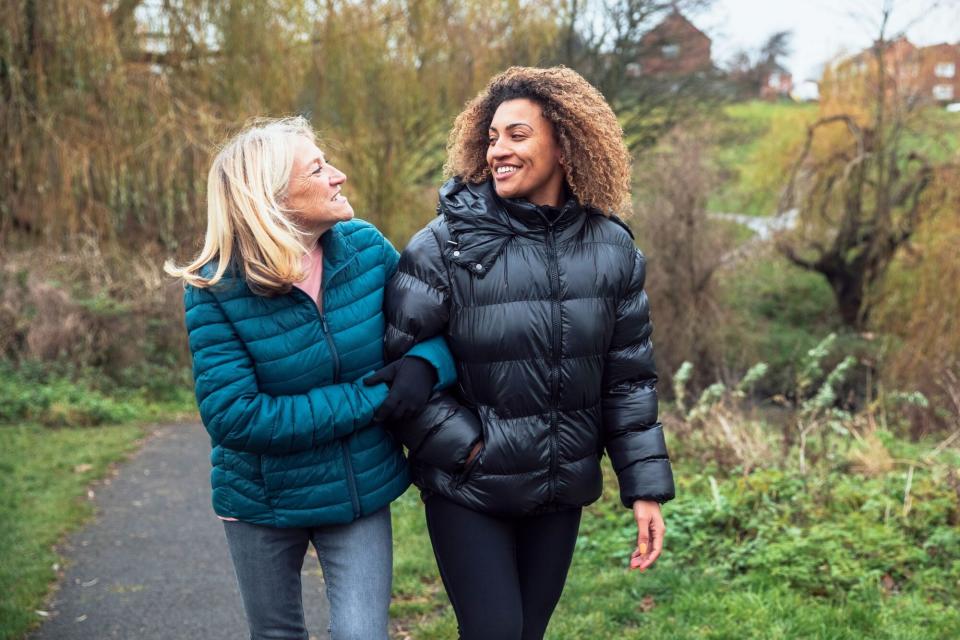Experts Say There Are Major Health Benefits Associated with Walking Outdoors in the Cold
It's no secret that walking is a great form of cardio exercise, but getting outdoors when there's snow on the ground and a chill in the air may not be appealing, even for the most dedicated of fitness enthusiasts. Still, getting outdoors for a walk, no matter what the temperature may be, is well worth the effort, experts agree. "Walking is an ideal option in terms of physical activity. It requires no specialized skill—everyone knows how to walk. It's low impact and safe," Dr. Cedric Bryant, president and chief science officer of the American Council on Exercise, told NBC's TODAY.
Walking has been proven to improve cardiovascular health, improve blood pressure and control blood sugar, increase your metabolism, maintain your weight, and maintain mobility. Instead of walking exclusively on flat terrain, consider hiking or adding hills to your route, and wear ankle weights to make your walk more challenging. "There are so many wonderful benefits in terms of being able to have that positive distraction, a change in scenery, and getting sunlight and fresh air," says Dr. Bryant.
Related: The Best Shoes to Wear During Long Walks

Getty Images / SolStock
The U.S. Department of Health and Human Services recommends adults participate in moderate-intensity aerobic exercise for 150 to 300 minutes a week, which is generally the equivalent of brisk walking for at least 30 minutes, five days a week. Doing so will help you maintain your current weight; however, if you're interested in losing weight, experts say you may need to walk longer and faster. Bryant recommends that walking for 45 to 60 minutes—even if that is broken up into two smaller segments—will help to increase your chances of losing weight.
In addition to the physical health benefits, walking also offering important mental health benefits. "Walking outside, being in nature, and getting out of the same place allows you to decompress, understand what's been going on and refocus," Dr. Mark A. Slabaugh, an orthopedic sports medicine surgeon at Mercy Medical Center in Baltimore, Maryland, told NBC's TODAY. "In my experience, it helps you to be able to almost meditate, to get in touch with your thoughts, to understand what's important and to relax."
Walking outdoors is also a way to connect with loved ones outside of your quarantine bubble, so long as you wear a face mask that covers your mouth and nose and maintain at least six feet of social distance. Socializing is just as important for your mental health as walking is for your physical health, say experts.

